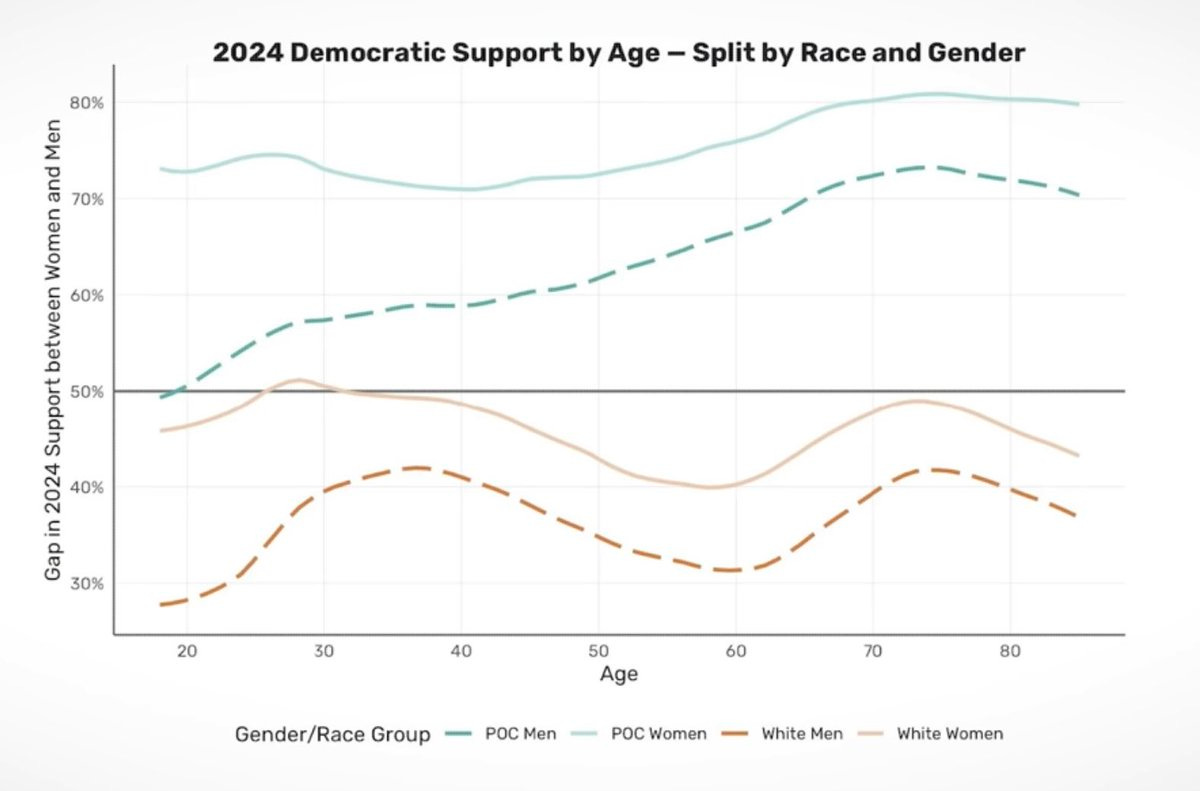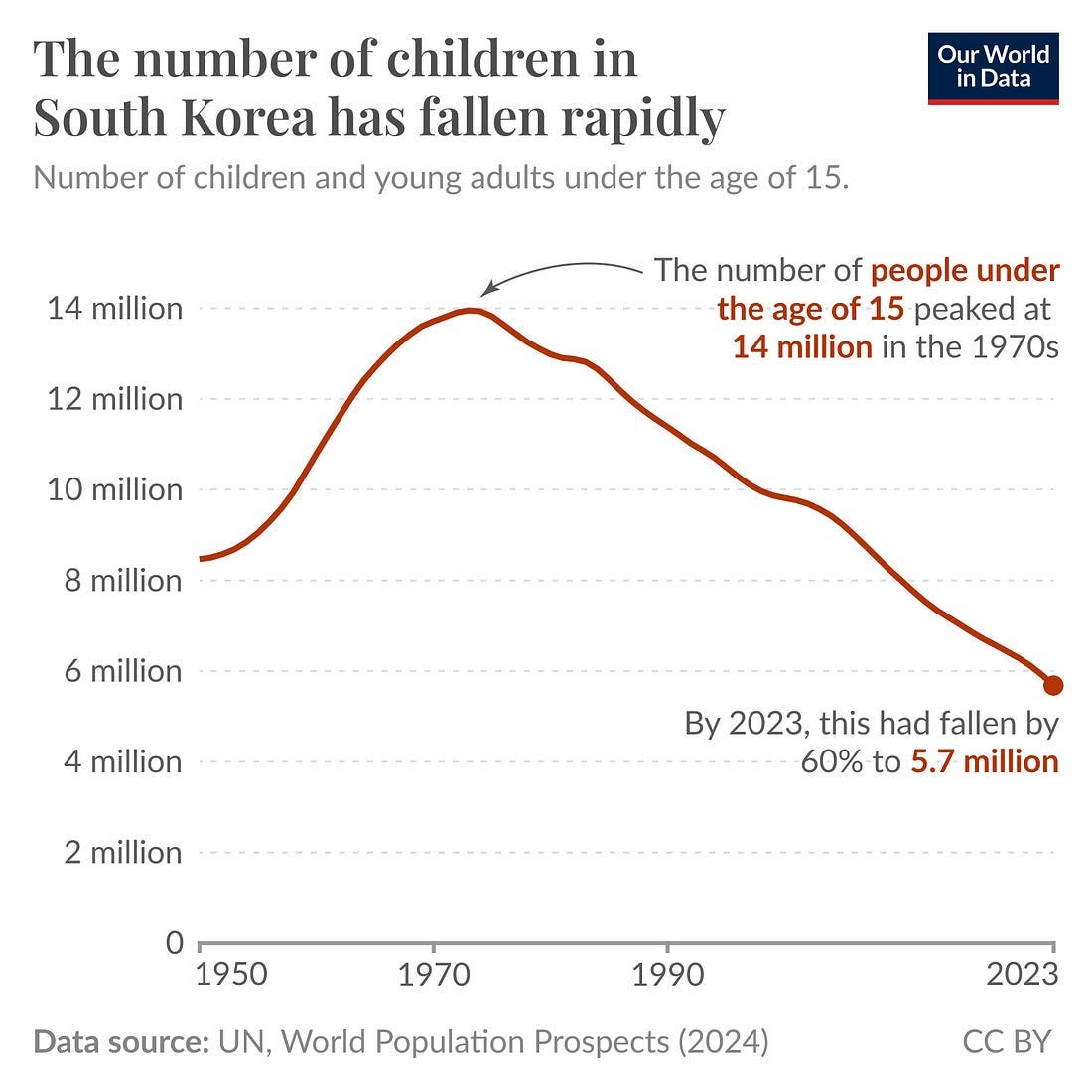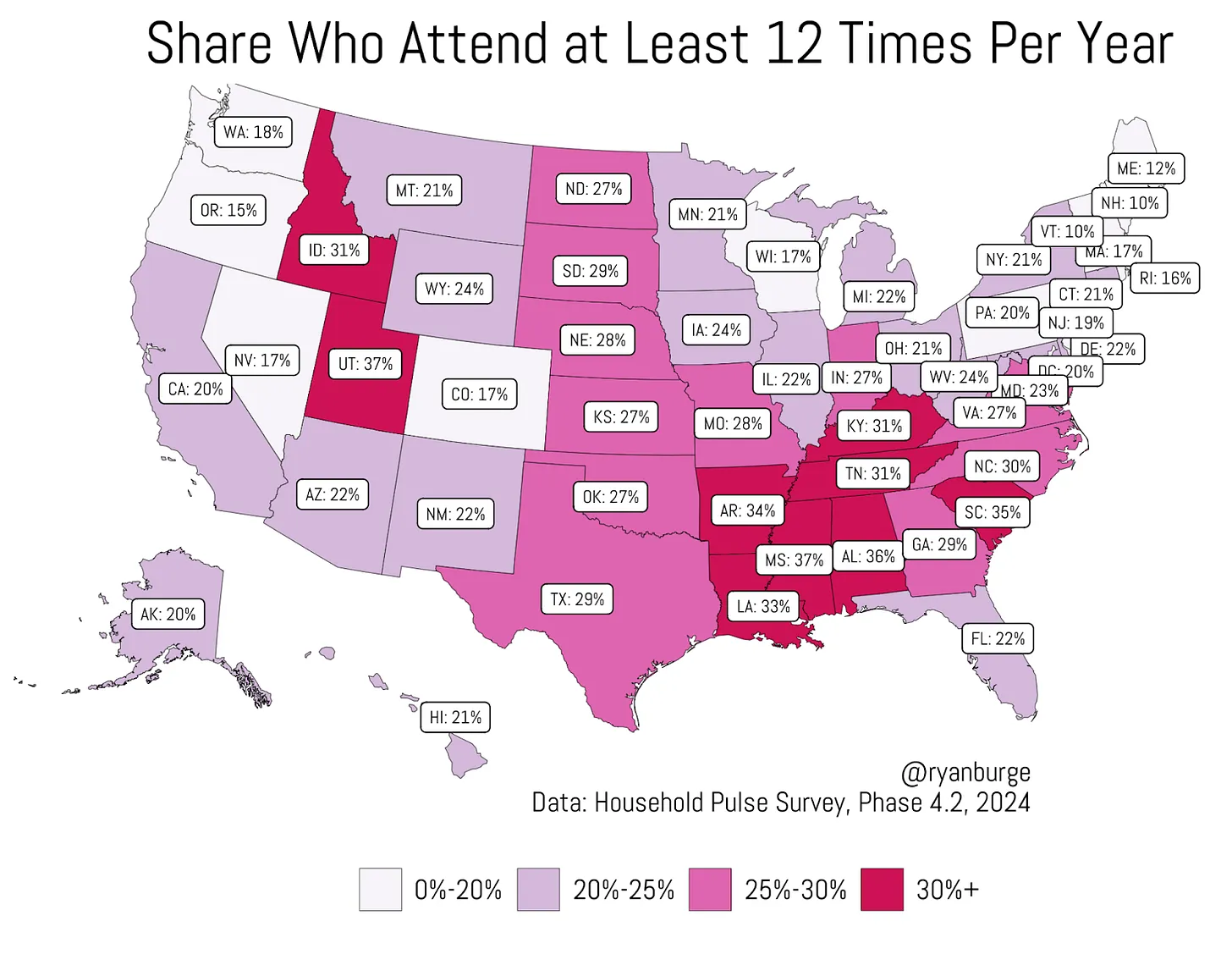How Internet Fame Is Made
Clout alchemy, agency as the new superpower, church attendance, and more in this week's digest.
What I’ve been reading: Israel and Civilization by Josh Hammer.
I am traveling most of next week and will be posting guest content during that time.
Agency Is the New Superpower
Jeff Giesea wrote an interesting essay on why in the age of AI, agency is the new superpower.
I’ve come to believe that agency — the ability to start, decide, act, adapt, and follow through — is rising in importance as AI continues to spread. We’re used to seeing raw intelligence as the ultimate advantage, but something is shifting. Intelligence is now everywhere. It’s on tap. It’s no longer scarce. The rare thing now is the ability and will to use it effectively.
…
AI can now perform much of the work the knowledge class was trained to do. LLMs can draft legal memos, write code, analyze data, and summarize research. What once required degrees and credentials is now being overtaken by prompts and AI agents. Meanwhile, global markets and off-the-shelf technology are lowering the barriers to building products, starting businesses, and spreading ideas. Intelligence isn’t going away, but it’s no longer scarce.
What’s scarce now is initiative — the ability to turn abundance into impact. That’s why agency is the new superpower, the new force multiplier. I’m not saying intelligence no longer matters. Creativity, vision, critical thinking — these are critical abilities in the Age of Agency. But the most impactful people will not necessarily be the smartest in terms of raw IQ. They’ll be the ones who initiate and execute with competence, the ones who most effectively harness the tools of superintelligence. The high-agency guy with a 120 IQ will be better positioned than the brilliant guy with a 140 IQ who spins in indecision and passivity.
It seems probable that the AI age will bring major changes to the structure of our economy and society. Many people are hoping that it will usher in their preferred change, such as ending the reign of managerialism. I don’t think anyone knows for sure, but it’s good to see people like Jeff thinking about future scenarios. And regardless of how AI plays out, being high agency is a good thing.
If you didn’t read it last week, do check out Jeff’s piece on the aesthetics of Trump 2.0 as well.
Clout Alchemy
Katherine Dee (who posts as default_friend on X) is a writer on internet culture who wrote an interesting essay on how online fame is made and re-made.
During the summer of 2019, an English teenager named Mary-Belle Kirschner—better known as Belle Delphine—burst into the mainstream by selling small jars of “GamerGirl Bath Water” for $30 apiece. The stunt spread rapidly across social media and the press, generating a predictable churn of headlines and think pieces. Was she a troll? A “performance artist”? Our era’s Andy Warhol? (A title inevitably conferred on every ambitious attention-seeker online.) If someone drank her bath water, would they get herpes? Inevitably: Had the Internet “gone too far”?
To much of the Internet, Delphine seemed to appear out of nowhere. Her 4.1 million fans were proof of some strange alchemy conjured in the borderlands of YouTube, Twitch, and OnlyFans. Her persona blended cosplay, J-fashion, gamer culture, and practically every negative stereotype associated with women online. It was playful, erotic, absurd—and, at times, even a bit gross.
…
Sometimes, women, and even more disturbingly, young girls, posted images or videos of themselves deliberately (“self-posters”)—performing, flirting, or simply seeking attention—while others were posted by anonymous users, sometimes without their knowledge. Young women like Boxxy and Cracky-chan became fan objects for boys and men on imageboards who circulated their images, transforming their presence into a kind of cult phenomenon. Both cases, and many before and after them, revealed that among “Very Online” men, there was a powerful audience ready to mythologize young women who fit the archetype of the quirky, cute, and accessible. These young women were also, often, mysteriously, quite neotenous (charitably, “anime-like”).
Meanwhile, women who played or commented on video games—especially if they were conventionally attractive—were often accused of weaponizing male loneliness for personal gain. Sometimes these accusations were baseless, fueled by misogyny; other times, they weren’t entirely wrong. While gaming communities always included female players, the “gamer girl” stereotype emerged as a shorthand for a woman perceived to be feigning genuine interest in geek culture to “simp farm” for attention, fame, money, or all the above. This tension, arguably, lay at the core of #GamerGate, where underlying fears suggested that women were infiltrating male-dominated spaces, reshaping cultural norms, and exploiting male vulnerability. As Delphine would demonstrate, these men were not devoid of agency, yet the presence of a fertile market for flirtation, parasocial relationships, and porn remained undeniable. Just as Boxxy, Cracky-chan, and countless others found fans eager to put them on a pedestal, Delphine proved that the historical template of the “cute girl on the Internet” was profitable.
Delphine simply refined these existing motifs and amplified them to attention-grabbing extremes. Her genius came not from inventing something from scratch, but from exploiting the “gamer girl” or “e-girl” archetype to its maximum effect
…
Andrew Tate offers another example of how cultural patterns evolve online through recombination rather than pure invention. At first glance, Tate—a “masculinity influencer” and “male supremacist” who rose to prominence long after the original pickup artist and manosphere communities peaked—might seem like an entirely new type of internet personality. Indeed, he’s been described as one; a sign of both the “end times” and the “startling” misogyny of Zoomer young men. Tate preaches almost parodic ideas about masculinity.
He, too, is often spoken about as if he emerged in a vacuum.
Yet his tactics also have deep roots. On Substack, Peter Limberg writes that long before Tate, “pick-up artists like Ross Jeffries, David DeAngelo, Mystery, and RSD Tyler taught ‘average frustrated chumps’ how to manipulate social dynamics and ‘improve their game’ with women.”
Click over to read the whole thing, which contains a lot of insights about the nature of becoming e-famous.
Best of the Web
Washingtonian: Gov. Wes Moore Is Worried About Maryland’s Men
Science: How often are children genetically unrelated to their presumed fathers? - Not very often, and far less than commonly believed.
X user Christian Heines posted this graph showing that “20 year old White men are now more Right-wing than 75 year old White men.”
NYT: The Conservative Women’s Magazine With Big Ambitions, and Sex Tips for Wives - Evie, the “conservative Cosmopolitan.”
WSJ: Even a $14,000 Government Handout Can’t Get South Korea’s Singles to Marry
Somebody shared this chart on the number of young people in South Korea over time.
James Wood: Reaching the West with Wonder - A look at Rod Dreher’s new book
AP: Protestant denominations try new ideas as they face declines in members and money
Ryan Burge posted an interesting map of church attendance.
New Content and Media Mentions
I got a mention this week from Mike d’Virgilio.
New this week:
Marriage in the Age of Polarization (paid) - As gender roles shift and politics deepen the rift, marriage is becoming a casualty of modern life.
My podcast this week was with Haroon Moghul on his experience of being Muslim in America.
Subscribe to my podcast on Apple Podcasts, Youtube, or Spotify.
Post-Script
Somebody sent me this segment about picking a new bishop from the classic and hilarious British TV show Yes, Prime Minister.








Perhaps if the UMC, PCUSA and Episcopalian churches started a new approach, like preaching the Gospel and teaching from the Bible they might have some success.
"20 year old White men are now more Right-wing than 75 year old White men"
The paradox is the 75-year-olds voting Democrat have what would be considered very right-wing opinions - tough on crime, anti illegal immigration, don't believe in/unaware of transgenderism, anti-PC culture, etc - but they keep watching CNN and voting Democrat like it's the 1990s. Meanwhile young males voting Republican probably have more moderate or liberal views but are reacting to a culture they perceive as far-left.